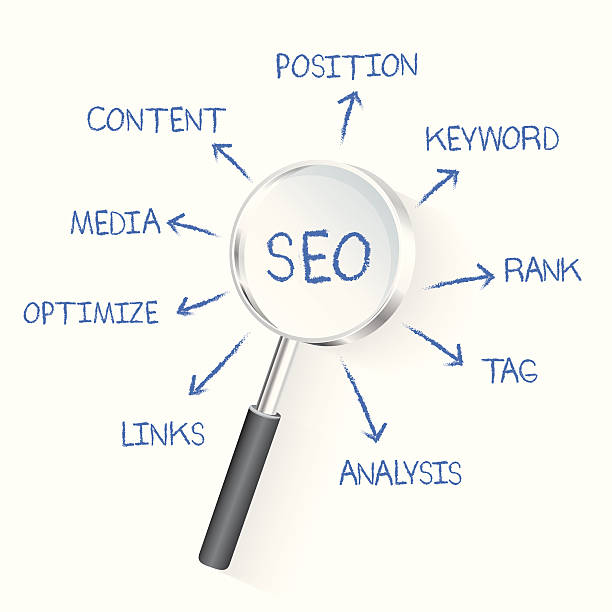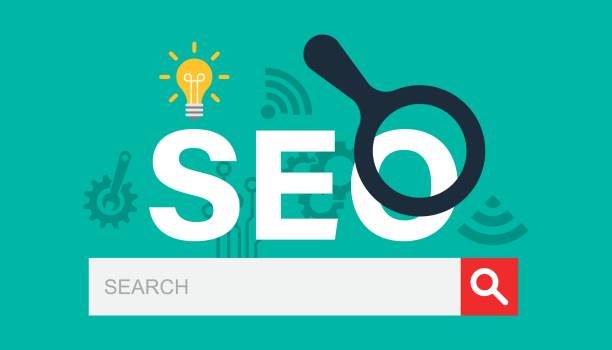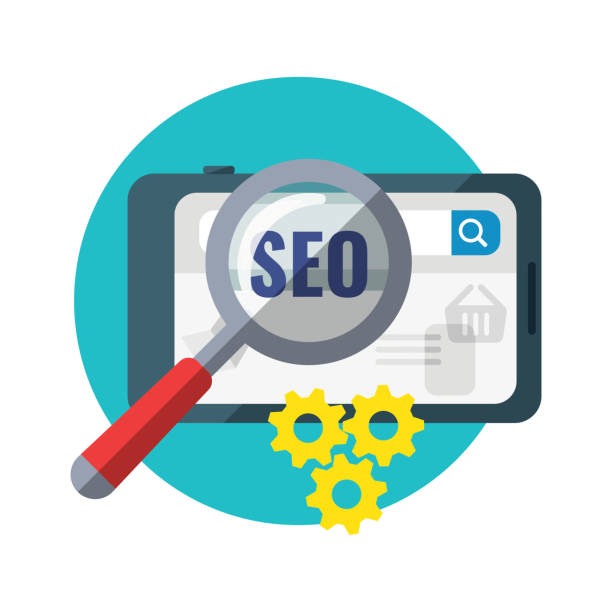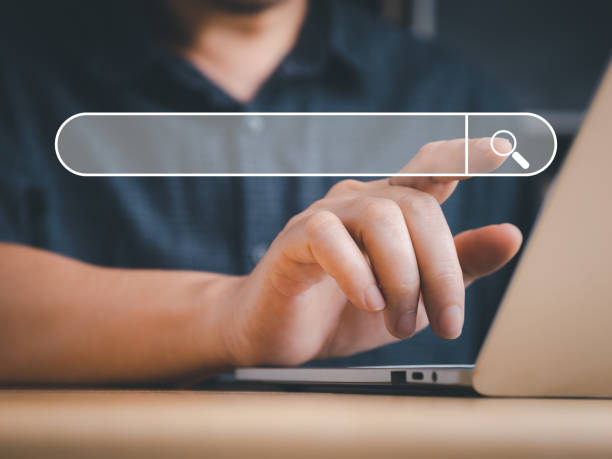What is Off-Page SEO and Why is it Important?

Off-Page SEO refers to a set of activities and actions performed outside your website, aiming to increase its authority and ranking in search engine results like Google.
Unlike On-Page SEO, which focuses on optimizing elements within your site, Off-Page SEO pays attention to signals and indications sent to your site from other websites and sources.
The importance of Off-Page SEO lies in the fact that Google and other search engines use these signals to better understand your website’s credibility, relevance, and value.
The more numerous and higher quality these signals are, the greater the likelihood of your site ranking higher.
Link building, content marketing, social media presence, and online branding are among the most important aspects of Off-Page SEO.
In summary, Off-Page SEO helps you increase your online credibility and authority, attracting more traffic to your site.
One of the most crucial factors in Off-Page SEO is backlinks.
Backlinks are links from other websites to your website.
The more numerous and higher quality the backlinks, the more your site’s credibility with search engines increases.
To earn backlinks, you can use various methods such as producing high-quality content, building relationships with other websites, and participating in online activities.
Does your current website convert visitors into customers, or does it drive them away? Solve this problem forever with professional corporate website design by Rasaweb!
✅ Build strong credibility and branding
✅ Attract target customers and increase sales
⚡ Get a free consultation now!
Building a Strong Backlink Profile

Building a strong backlink profile is essential for improving your website’s Off-Page SEO.
A backlink profile consists of a collection of incoming links to your website from other domains.
High-quality links from reputable and relevant websites positively impact your site’s ranking in search results.
How to build a strong backlink profile?
- Diversity in Links: Instead of focusing on a specific type of link, get links from various sources.
Links can come from blogs, news websites, social media, directories, and forums. - Quality Links: Links received from reputable websites with high domain authority have a greater impact than links from low-authority websites.
- Relevance: Links received from websites related to your field of activity are more valuable.
- Natural Links: Avoid buying links, as search engines identify and penalize such links.
Instead, focus on producing valuable content and building relationships with other websites to receive natural links.
Creating a strong backlink profile requires patience and effort, but the results are worth the investment.
By following these tips, you can improve your website’s ranking in search results and attract more traffic.
Effective Link Building Strategies in Off-Page SEO

Off-Page SEO largely depends on link-building strategies.
Effective link building means creating high-quality backlinks from reputable and relevant websites.
In this section, we will review several effective link-building strategies:
1.
Producing Valuable Content: Creating high-quality and valuable content is the best way to attract natural backlinks.
When your content is useful and engaging for your audience, the likelihood of other websites linking to it increases.
Content can include articles, videos, infographics, and podcasts.
#Content #Link_Building
2.
Guest Link Building: By writing guest articles for other websites, you can receive backlinks.
In this method, you write an article related to your field of activity for another website and, in return, receive a link to your website.
3.
Analyzing Competitor Links: Reviewing competitor backlink profiles can give you ideas on where you can get backlinks.
By using SEO analysis tools, you can examine competitor links and try to get links from the same sources.
4.
Social Networks: An active presence on social media and sharing your content can help increase your brand awareness and attract backlinks.
Remember that the quality of links is more important than their quantity.
High-quality links from reputable websites have a greater impact on your site’s ranking in search results.
| Strategy | Advantages | Disadvantages |
|---|---|---|
| Producing Valuable Content | Attracting natural links, increasing site authority | Time-consuming and requires continuous effort |
| Guest Link Building | Receiving links from reputable websites, increasing traffic | Requires finding relevant websites and providing quality content |
| Analyzing Competitor Links | Identifying link-building opportunities, finding reputable sources | Requires the use of SEO analysis tools |
| Social Networks | Increasing brand awareness, attracting links | Requires continuous activity and proper network management |
The Role of Social Media in Off-Page SEO

Social media plays an important role in Off-Page SEO.
Although social media links do not directly affect your site’s ranking, they can indirectly help improve Off-Page SEO.
How do social media help Off-Page SEO?
- Increasing Brand Awareness: An active presence on social media and sharing your content can help increase your brand awareness.
The more brand awareness you have, the more likely people are to link to your website. - Increasing Traffic: Social media can be an important source for attracting traffic to your website.
By sharing your website links on social media, you can attract more traffic to your site. - Improving Engagement: Interacting with your audience on social media can help build stronger relationships with them.
These relationships can lead to receiving natural backlinks and increasing your site’s credibility. - Strengthening Social Signals: Although social media links do not directly affect your site’s ranking, search engines pay attention to social signals.
The number of likes, shares, and comments on social media can indicate to search engines that your content is valuable to the audience.
To effectively use social media in Off-Page SEO, you need to have a clear strategy and regularly share your content on social media.
You should also interact with your audience and respond to their questions and comments.
Does your current e-commerce website not generate the sales you expect?
Rasaweb is an expert in professional e-commerce website design!
✅ An attractive and user-friendly site aimed at increasing sales
✅ High speed and security for an ideal shopping experience⚡ Get a free consultation for online store design with Rasaweb!
Content Marketing and Off-Page SEO

Content marketing and Off-Page SEO are two sides of the same coin.
Content marketing means producing and publishing valuable and engaging content to attract and retain an audience.
This content can include articles, videos, infographics, podcasts, and other formats.
How does content marketing help Off-Page SEO?
- Attracting Backlinks: High-quality and valuable content naturally attracts backlinks.
When your content is useful and engaging for your audience, the likelihood of other websites linking to it increases. - Increasing Brand Awareness: Content marketing can help increase your brand awareness.
The more brand awareness you have, the more likely people are to link to your website. - Attracting Traffic: Content marketing can help attract traffic to your website.
By producing engaging content and optimizing it for search engines, you can attract more traffic to your site. - Improving Engagement: Content marketing can help improve engagement with your audience.
By producing relevant content and responding to audience needs, you can build stronger relationships with them.
To effectively use content marketing in Off-Page SEO, you need to have a clear strategy and regularly produce and publish high-quality content relevant to your field of activity.
You should also optimize your content for search engines and share it on social media.
The Impact of Online Branding on Off-Page SEO

Online branding plays an important role in Off-Page SEO.
A strong brand can help you increase your online credibility and authority, attracting more traffic to your site.
How does online branding help Off-Page SEO?
- Increasing Brand Awareness: Online branding can help increase your brand awareness.
The more brand awareness you have, the more likely people are to link to your website. - Increasing Direct Traffic: A strong brand can help increase direct traffic to your website.
When people are familiar with your brand, they are more likely to directly type your website name into their browser. - Improving Click-Through Rate: A strong brand can help improve the click-through rate (CTR) in search results.
When your brand name appears in search results, people are more likely to click on your link. - Attracting Natural Links: A strong brand can help attract natural links.
When other websites consider your brand credible and trustworthy, they are more likely to link to your website.
For effective online branding, you need to have a clear brand identity and consistently use it across all online channels.
You should also interact with your audience and respond to their comments and questions.
Combine effective Off-Page SEO with good branding.
Useful Tools for Off-Page SEO
![]()
To effectively implement Off-Page SEO strategies, using the right tools is essential.
These tools help you evaluate your website’s performance in Off-Page SEO, identify link-building opportunities, and analyze competitor activities.
Some useful tools for Off-Page SEO:
- Ahrefs: One of the most powerful backlink analysis tools.
Using Ahrefs, you can review your website’s and competitors’ backlink profiles, identify link-building opportunities, and evaluate your content’s performance on social media. - Moz: Moz is another popular SEO tool that offers various features for Off-Page SEO analysis.
Using Moz, you can check your website’s Domain Authority (DA) and Page Authority (PA), analyze your backlink profile, and identify competitor keywords. - SEMrush: SEMrush is a comprehensive SEO tool that provides various features for keyword research, competitor analysis, backlink checking, and rank tracking.
Using SEMrush, you can design and implement more effective Off-Page SEO strategies. - Google Search Console: Google Search Console is a free tool from Google that helps you review your website’s performance in search results.
Using Google Search Console, you can identify indexing errors, check your keyword performance, and view incoming links to your website.
Successful Off-Page SEO is possible with the help of these tools and data analysis.
| Tool | Key Features | Cost |
|---|---|---|
| Ahrefs | Backlink analysis, competitor review, keyword tracking | Paid subscription |
| Moz | Domain Authority, backlink analysis, keyword research | Paid subscription |
| SEMrush | Keyword research, competitor analysis, rank tracking | Paid subscription |
| Google Search Console | Review site performance on Google, indexing errors | Free |
Measuring and Evaluating Off-Page SEO Performance

Measuring and evaluating Off-Page SEO performance is essential for understanding the effectiveness of your strategies and identifying opportunities for improvement.
By measuring and evaluating Off-Page SEO performance, you can determine which strategies are effective and which need adjustment.
Key indicators for measuring Off-Page SEO performance:
- Number of Backlinks: The number of backlinks to your website is one of the most important Off-Page SEO indicators.
The more backlinks you have, the more your site’s credibility with search engines increases.
To measure the number of backlinks, you can use tools like Ahrefs and Moz. - Domain Authority (DA) and Page Authority (PA): Domain Authority and Page Authority are metrics that indicate your website’s credibility compared to other websites.
Domain Authority and Page Authority are calculated by Moz and can help you evaluate your Off-Page SEO performance. - Organic Traffic: Organic traffic refers to traffic that comes to your website through search results.
An increase in organic traffic indicates the success of your Off-Page SEO strategies.
To measure organic traffic, you can use Google Analytics. - Click-Through Rate (CTR): Click-through rate refers to the percentage of people who click on your website’s link in search results after seeing it.
Improving CTR can help increase organic traffic and improve your site’s ranking.
By continuously measuring and evaluating these indicators, you can improve your Off-Page SEO performance and attract more traffic to your site.
Did you know that 94% of a company’s first impression is related to its website design?
Rasaweb helps you create the best first impression by offering professional corporate website design services.
✅ Create a professional and trustworthy image for your brand
✅ Easily attract potential customers and improve online standing
⚡ Get a free corporate website design consultation
Common Mistakes in Off-Page SEO and Their Solutions

In the Off-Page SEO process, mistakes can occur that can harm your website’s ranking and credibility.
Awareness of these mistakes and their solutions can help you prevent them and implement more effective Off-Page SEO strategies.
Common mistakes in Off-Page SEO:
- Buying Backlinks: Buying backlinks is one of the biggest mistakes in Off-Page SEO.
Google and other search engines consider buying backlinks a violation and may penalize your website.
Instead of buying backlinks, you should focus on producing high-quality content and attracting natural backlinks. - Excessive Link Building: Excessive link building means receiving a large number of backlinks in a short period.
This can appear suspicious to search engines and penalize your website.
You should build links gradually and naturally. - Link Building from Low-Quality Websites: Link building from low-quality and irrelevant websites can harm your website’s ranking and credibility.
You should only receive links from reputable and relevant websites. - Lack of Link Diversity: Lack of link diversity means receiving backlinks from only one type of website.
For example, if all your backlinks are from blogs, it might appear suspicious to search engines.
You should receive links from various sources.
By avoiding these mistakes and adhering to Off-Page SEO principles, you can improve your website’s ranking and credibility in search results.
Always be careful and avoid black hat methods.
The Future of Off-Page SEO; What Changes Are Expected?

Off-Page SEO is a dynamic field that is constantly changing.
With advancements in technology and changes in search engine algorithms, Off-Page SEO strategies must also change to maintain their effectiveness.
Potential changes in the future of Off-Page SEO:
- Greater Emphasis on User Experience: User Experience (UX) will gain more importance.
Search engines will rank websites that offer a better user experience higher. - More Emphasis on Quality Content: High-quality and valuable content will continue to play an important role in Off-Page SEO.
However, search engines will place greater importance on content that generates more engagement and fully meets user needs. - Greater Role for Artificial Intelligence: Artificial Intelligence (AI) will play a more prominent role in Off-Page SEO.
Search engines will use AI to better understand website content and identify artificial links. - More Importance to Non-Link Signals: Non-link signals such as brand mentions, citations, and social interactions will become more important.
These signals help search engines evaluate the credibility and authority of websites.
To succeed in future Off-Page SEO, you must continuously adapt your strategies to changes in search engine algorithms and user needs.
Be flexible and don’t be afraid to experiment with new methods.
Wikipedia can help you
Frequently Asked Questions
| Row | Question | Answer |
|---|---|---|
| 1 | What is Off-Page SEO? | Off-Page SEO refers to a set of actions performed outside your website to improve its ranking in search engines. These actions include backlink building, social media presence, branding, etc. |
| 2 | Why is Off-Page SEO so important? | Off-Page SEO signals to search engines that your website is credible, popular, and trustworthy. High-quality backlinks from reputable sites are strong signals for better rankings and help increase your domain authority. |
| 3 | What are the most important components of Off-Page SEO? | The most important components of Off-Page SEO include: Link Building, Content Marketing, Social Media Marketing, Influencer Marketing, and Online Reputation Management. |
| 4 | What is a backlink and why is it important for Off-Page SEO? | A backlink is a link from another website that points to your website. These links act as a “vote of confidence” from Google’s perspective and indicate the credibility of your content. The more numerous and higher quality the backlinks, the better your site’s ranking will be. |
| 5 | What are the types of backlinks in terms of their impact on SEO? | The two main types of backlinks are DoFollow and NoFollow. DoFollow backlinks pass on authority (Link Juice) and directly impact rankings. NoFollows do not pass authority but can still generate traffic and help make the link profile look natural. (Also UGC and Sponsored) |
| 6 | How can I create high-quality backlinks for my site? | To build high-quality backlinks, you can use methods such as: producing excellent and shareable content, Guest Posting on relevant and reputable sites, Broken Link Building, Digital PR, and analyzing competitor backlinks. |
| 7 | What are Toxic Backlinks and how do they affect a site? | Toxic or spam backlinks are links from low-quality, spammy, or irrelevant websites that point to your site. These backlinks can harm your site’s ranking and even lead to penalties from Google’s algorithms. |
| 8 | What is the role of social media in Off-Page SEO? | Although social signals (likes, shares, etc.) are not direct ranking factors, they help Off-Page SEO. They increase content visibility, drive direct traffic to the site, and ultimately increase the chance of acquiring natural backlinks and improving brand recognition. |
| 9 | What is the importance of diversity in a backlink profile? | Diversity in a backlink profile means that your links come from various sources (blogs, forums, news sites, directories), with diverse anchor texts, and a mix of DoFollow and NoFollow links. This diversity signals to Google that your link building is natural and organic. |
| 10 | What are the common Off-Page SEO mistakes to avoid? | Common mistakes include: buying backlinks in large volumes from low-quality sources, excessive link building with target keywords (Over-optimization), neglecting quality for quantity in backlink building, lack of diversity in the link profile, and ignoring toxic backlinks and not disavowing them. |
And other advertising services by RasaWeb Advertising Agency in the field of advertising
- Smart Conversion Rate Optimization: A specialized service for growing user engagement based on Google ad management.
- Smart Social Media: Designed for businesses seeking to attract customers through intelligent data analysis.
- Smart Custom Software: A novel service for increasing user engagement through user experience customization.
- Smart Advertorials: A combination of creativity and technology for digital branding through intelligent data analysis.
- Smart Conversion Rate Optimization: A novel service for increasing sales through Google ad management.
And more than hundreds of other services in the field of internet advertising, advertising consultation, and organizational solutions
Internet Advertising | Advertising Strategy | Advertorials
Sources
Complete Guide to Off-Page SEOWhat is a Backlink and What is its Use?Step-by-step Link Building TutorialPractical Off-Page SEO Strategies
? Are you looking for a big leap in the online world? Rasaweb Afarin creates a powerful and effective online presence for your business by providing innovative digital marketing solutions, including fast website design.
📍 Tehran, Mirdamad Street, next to Central Bank, Kazeroon South Alley, Ramin Alley, No. 6

